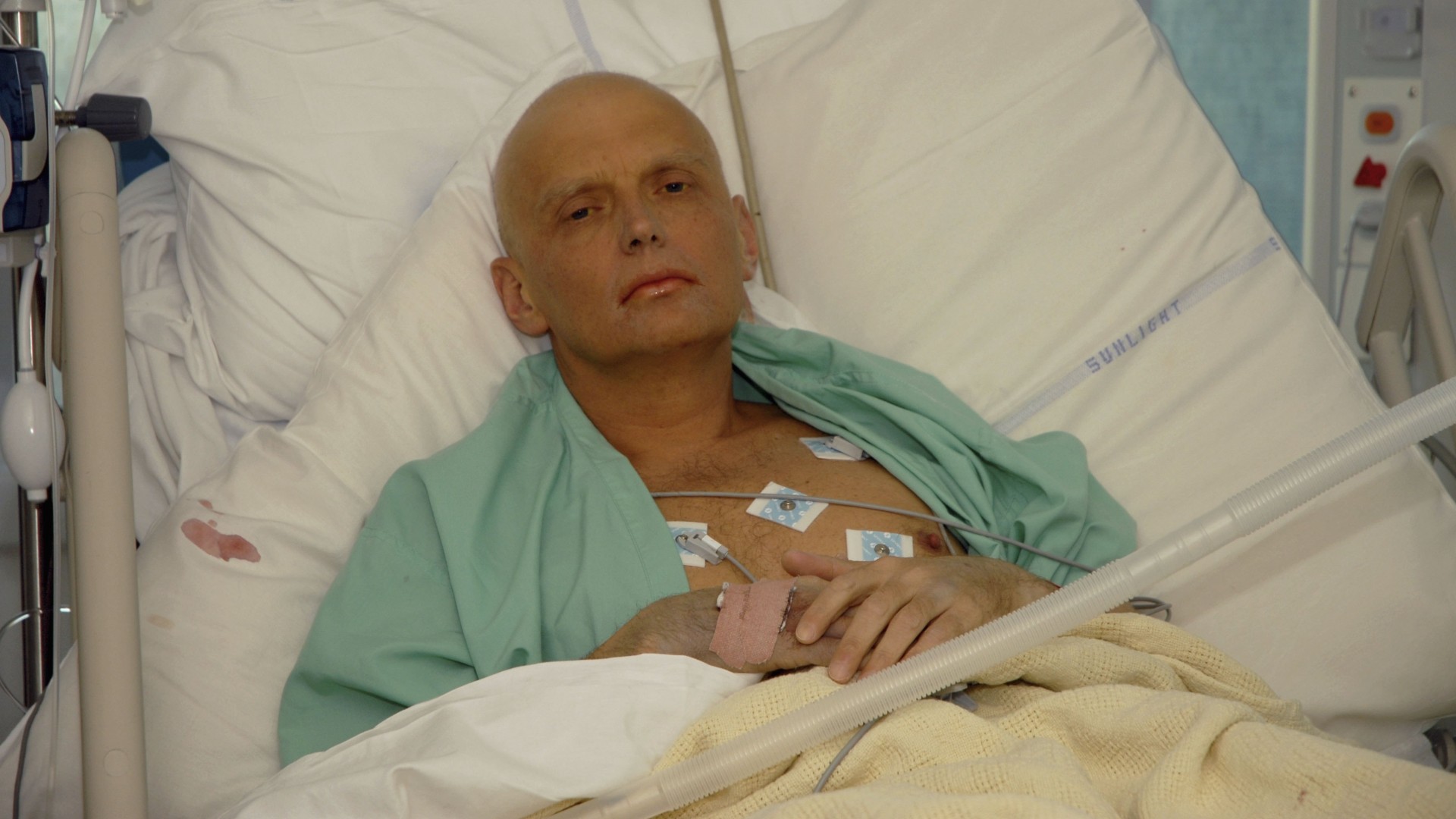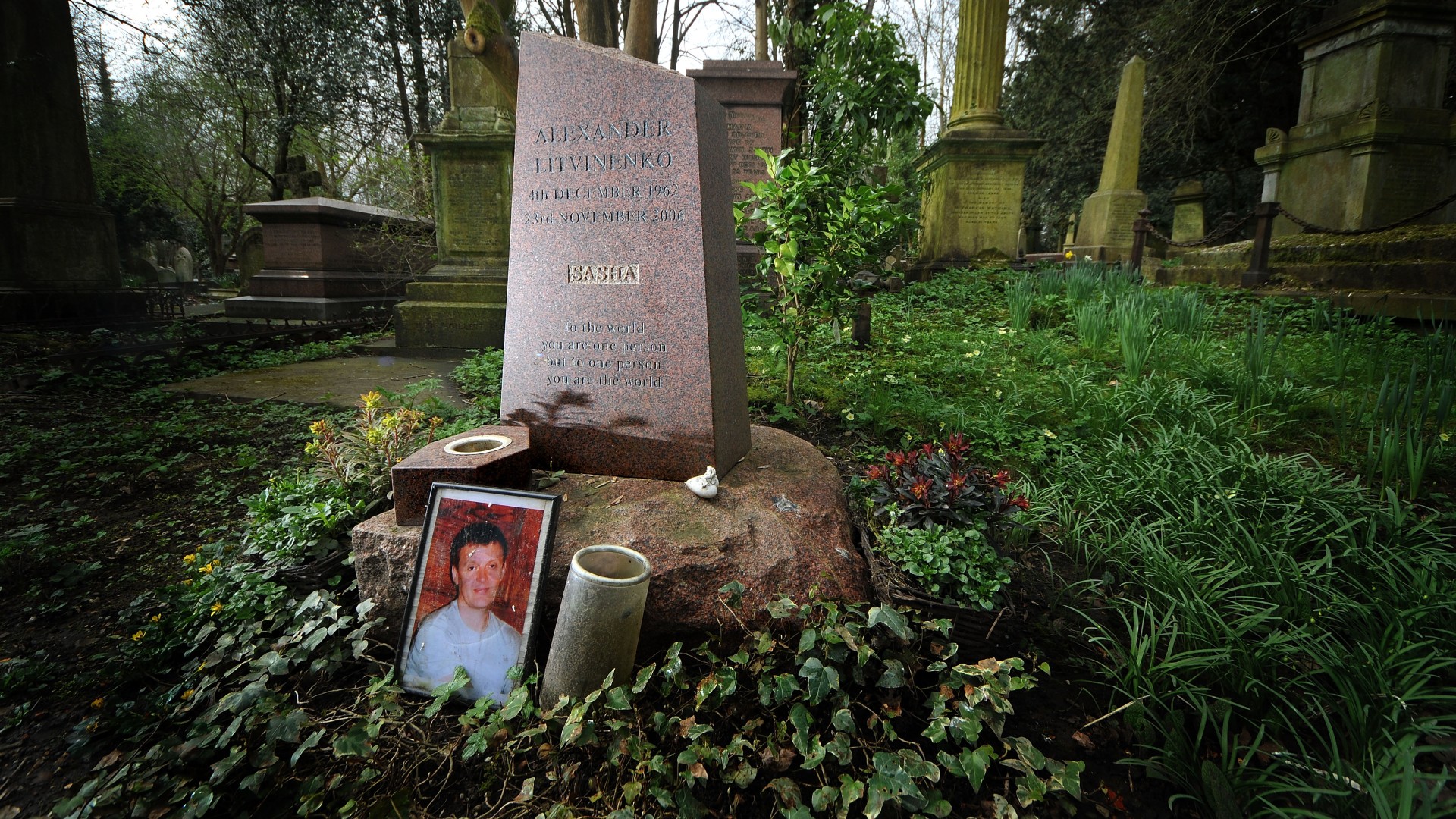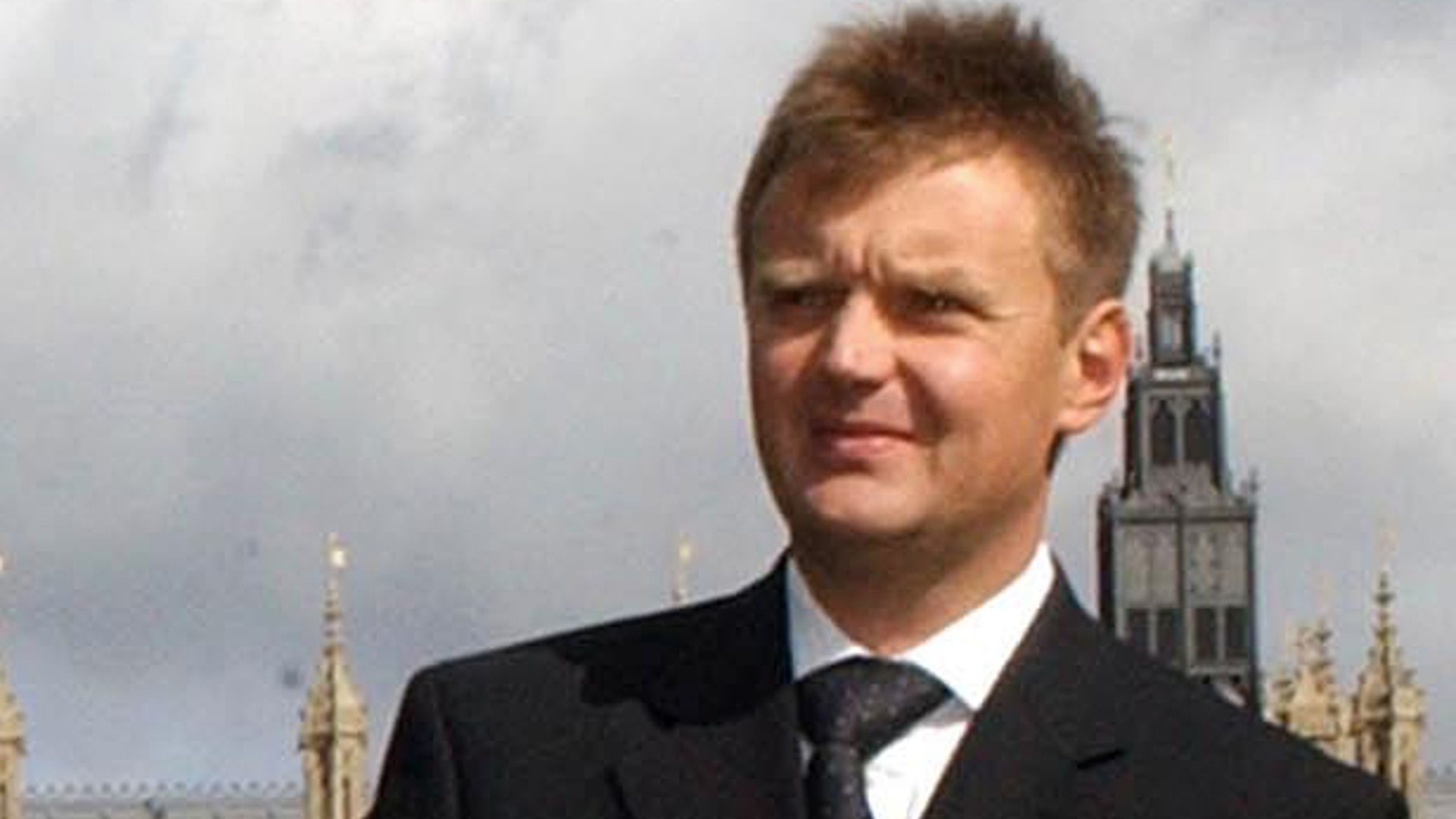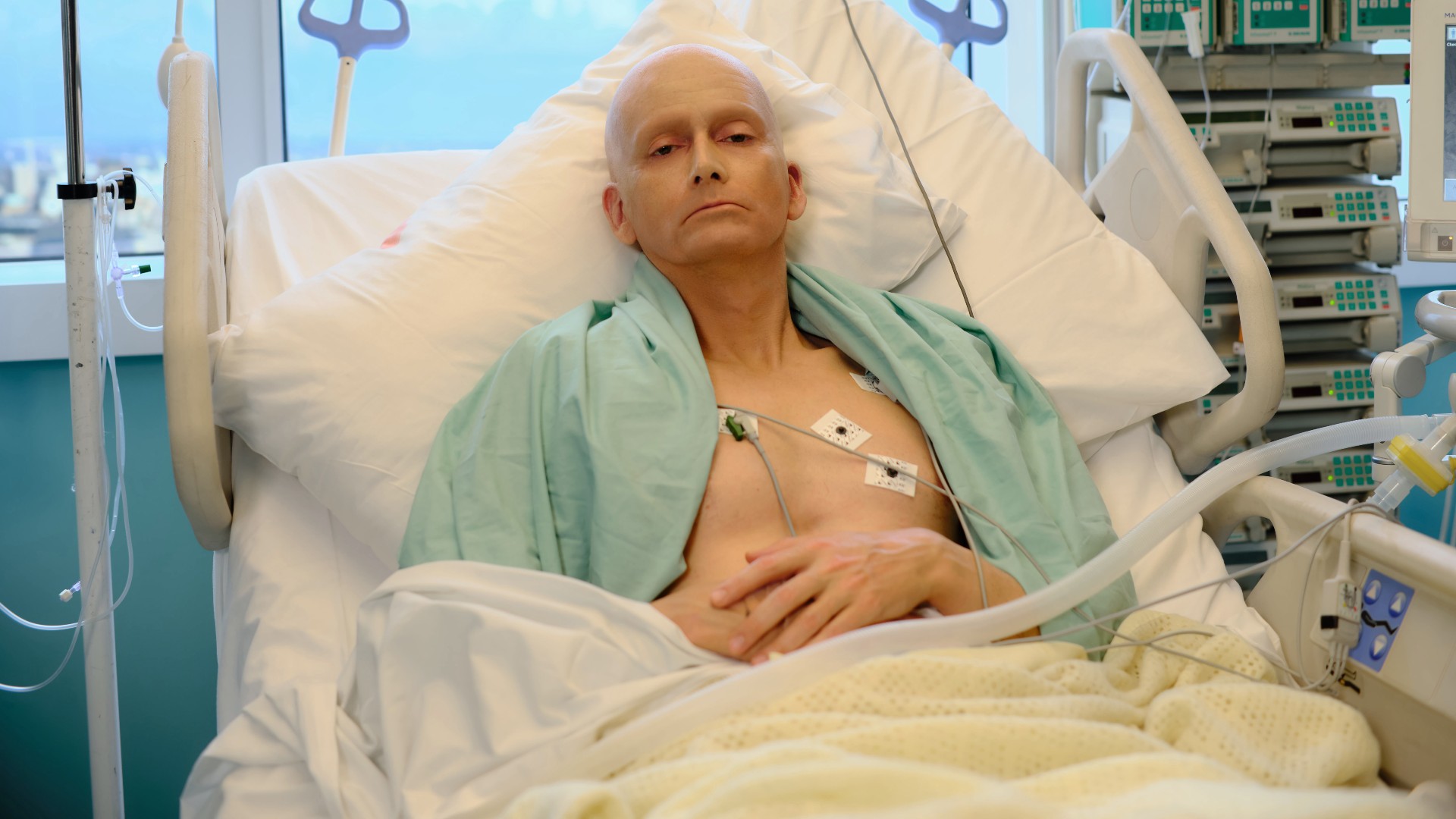What happened to Alexander Litvinenko, why was he poisoned and why did he leave Russia? The devastating true story behind David Tennant ITVX drama Litvinenko
If you’re wondering what happened to Alexander Litvinenko you might not be alone as David Tennant plays him in ITVX’s upcoming drama…


What happened to Alexander Litvinenko is set to be explored in ITVX’s devastating new series Litvinenko starring David Tennant as the former Russian spy.
This year has seen the release of plenty of chilling dramas that have left fans looking to discover more about the equally haunting true events that inspired them, from Netflix’s The Stranger true story to The Watcher’s John Graff and the real killer he’s based on. Now ITVX’s new drama might have viewers wondering what happened to Alexander Litvinenko. His horrific murder and accusations about who could be responsible will be depicted in the soon-to-be-released series, Litvinenko, where he is played by British acting icon and star of Inside Man, David Tennant.
Here we explain what happened to Alexander Litvinenko and what we know about why he was poisoned and why he left Russia ahead of the ITVX drama’s release.
*Warning: Spoilers ahead*
What happened to Alexander Litvinenko?
Just as the much-talked about ITVX drama with David Tennant in the lead role will depict, the true story of what happened to Alexander Litvinkeno was utterly heartbreaking. Once an agent of the FBS - the Russian security service - Alexander was living in exile in the UK where he was a strong critic of Russia’s President Vladimir Putin and had become a British citizen.
According to the BBC in November 2006 Alexander had met with two Russian men, former agent Andrei Lugovoi and Dmitri Kovtun, at a London hotel and shortly afterwards fell seriously ill.

In the days that followed, Alexander Litvinenko was admitted to hospital and was later transferred to University College Hospital on November 17 after his symptoms steadily worsened. It became apparent that he had somehow been poisoned with a radioactive substance which was ultimately revealed to have been Polonium-210.
Sign up to our free daily email for the latest royal and entertainment news, interesting opinion, expert advice on styling and beauty trends, and no-nonsense guides to the health and wellness questions you want answered.
The BBC stated that investigators had discovered traces of this harmful substance at sites across London where the two men he’d met for tea had been. Tragically, despite all the treatment and expert care he’d received, Alexander Litvinenko died on November 23 at UCH, apparently with his wife Marina, father Walter and son Anatoli at his side. He was buried in Highgate Cemetery in North London.

As reported by The Guardian, a spokesperson for the hospital, Jim Down, declared in a statement at the time, “We are sorry to announce that Alexander Litvinenko died at 9.21pm. He was seriously ill when he was admitted on November 17 and the medical team at the hospital did everything possible to save his life."
Towards the end of Alexander Litvinenko’s life he reportedly laid the blame for his illness directly at President Putin’s door. The BBC reports that his widow, Marina Litvinenko said that her late husband had alleged as he lay dying that President Putin was responsible for "everything that happened to him", although Russia has always denied any involvement.

Despite this, last year the European Court of Human Rights published a judgement that ruled they’d found beyond reasonable doubt that Lugovoi and Kovtun were responsible for Alexander Litvinenko’s murder. As per The Guardian, they also expressed the belief that they did so “acting as agents of the respondent state”, in this case, Russia.
This mirrored the findings of the UK inquiry which previously expressed its belief that they deliberately poisoned him with Polonium-210. Russia has refused to extradite the men to face trial in the UK. Whilst reports stated in June this year that one of the main suspects, Dmitri Kovtun, had died in hospital.
The terrible true events of what happened to Alexander Litvinenko are set to be dramatized in ITVX's upcoming four-part series.
Why was Alexander Litvinenko poisoned?
Given that the suspects heavily suspected and later ruled by the ECHR to be responsible for Alexander Litvinenko’s murder always denied their involvement in the crime, the exact reason for him being poisoned remains a matter of speculation. It’s thought that Alexander might possibly have targeted with Polonium-210 for a number of political reasons.
He was later found to have been working for the British security services and could have been considered a traitor in Russia for defecting. According to The Guardian he also previously fell out with President Putin after going to him with allegations of corruption within the FSB when he was the director of the agency.

In the days before his death he had also levelled accusations at the President that he was in some way involved in the murder of Russian journalist Anna Politkovskaya in Moscow in 2006. These weren’t the only allegations he’d made either as Alexander had also previously claimed in his books that Russia staged bombings in 1999 that lead to the Second Chechen War and ultimately to President Putin coming to power.
Although his accusations remain allegations, there was certainly plenty of tension between Alexander and Russia that could have been the motive for his poisoning.
How long did Alexander Litvinenko live?
After being poisoned with the Polonium-210 Alexander Litvinenko, which was believed to have happened on November 1 2006, he lived for three weeks. He passed away on November 23 when he was 43 years old after spending most of those few weeks in hospital.
Why did Alexander Litvinenko leave Russia?
In 2000, six years before his murder, Alexander Litvinenko left Russia and headed to the UK. The BBC reports that he claimed he was being persecuted in Russia and was later granted asylum status. He is believed to have become a British citizen the year he passed away. The persecution he alleged could perhaps have arisen due to the other claims he had made about the country and its internal politics.

Litvinenko ITVX release date
Those who find themselves instantly drawn to series inspired by true events don’t need to wait long before they can see the ITVX’s dramatization of what happened to Alexander Litvinenko back in 2006. All four episodes of the Litvinenko TV series will be released on ITVX (ITV’s new rebranded on-demand service) on December 15, 2022. Until then there's plenty of time to learn more about the harrowing true events that inspired this and other hit shows as we await David Tennant's portrayal of Alexander Litvinenko.
Emma is a Royal Editor with eight years experience working in publishing. She specialises in the British Royal Family, ranging from protocol to outfits. Alongside putting her royal knowledge to good use, Emma knows all there is to know about the latest TV shows on the BBC, ITV and more. When she’s not writing about the latest royal outing or unmissable show to add to your to-watch list, Emma enjoys cooking, long walks and watching yet more crime dramas!
